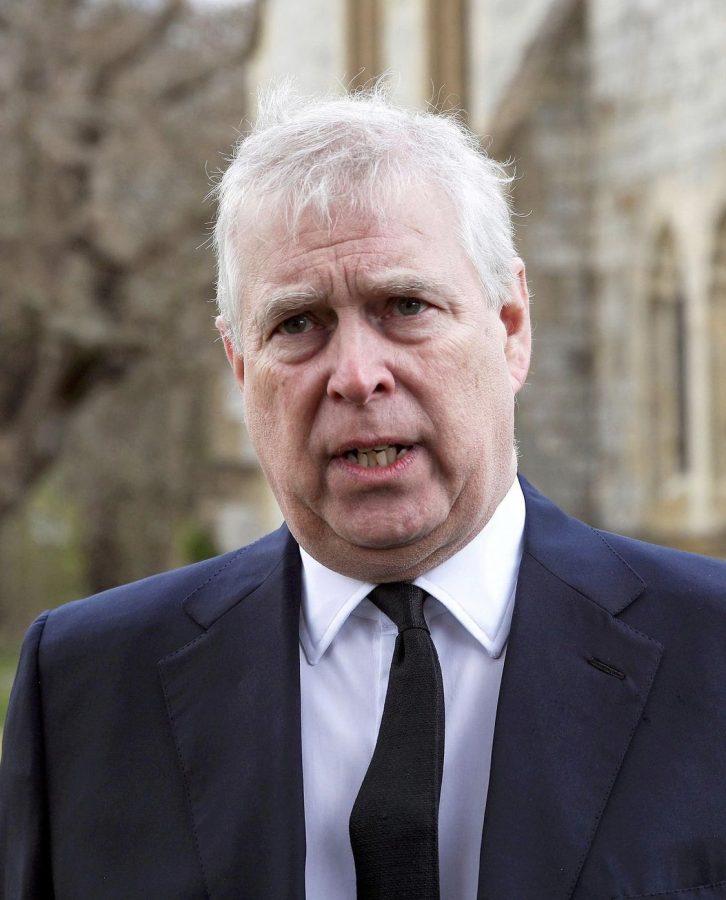Royal Family Strips Favored Prince Andrew of Titles
Prince Andrew, Duke of York, son of Elizabeth II, Queen of the United Kingdom and the other commonwealth realms, has been stripped of his official titles, military ranks, charities and patronages in the face of a sex-abuse suit brought against him by Virginia Giuffre. He retains the title of “Prince” and the peerage of Duke of York. In short, he’s been fired, and it’s about time.
Concerning talk around disgraced financier and sex offender Jeffrey Epstein and the Prince’s relationship dates back to March 2011. However, widespread media attention wasn’t garnered until after Prince Andrew sat down for a troubling interview with the BBC’s Newsnight to defend his “relationship” with Epstein, denying any allegations of sexual abuse and of ever meeting his accuser. Fast-forward to 2022, with Epstein dead by apparent suicide and Ghislaine Maxwell — Epstein’s sometimes girlfriend, sometimes pimp in custody — Prince Andrew’s reckoning has finally come. So, what does this mean for the Queen’s “favorite” child?
ield the words prince, duke, queen, realm, etc., almost seems superfluous and irrelevant; yet we can’t deny they hold significance. It was not too long ago that such titles represented the epitome of human power, but the monarchy is not the same as it used to be. While their titles and palaces remain, their indisputable importance has gone. The Queen and her family’s existence are essentially a formality, a remembrance of the past. Yet, monarchy is still something intrinsic to the British identity — it cannot be denied that monarchy is still something inherent. That is precisely why their position is so fragile. Their power is sustained both literally and metaphorically by taxpayer dollars because they are afforded their status based on public opinion. Nowadays, sexual abuse is, finally, something that many find detestable.
“The firm” — as it was allegedly coined by Queen Elizabeth’s father King George VI when he declared that “We’re not a family. We’re a firm.” — must survive at all costs. Modern-day documentaries and shows like “The Crown” and interviews by on-the-outs royals like Diana, princess of Wales, and Meghan, duchess of Sussex, have turned to implore “the firm” when alluding to the shady doings of the royal family. So, if we must look at the latest development in the Prince’s saga in terms of the “firm” or a business, then the Windsors, the family name of the Queen, are merely custodians to some more significant entity. The Queen is the boss, and her underlings (her now-deceased husband, siblings, children, grandchildren, servants, advisers, gardeners and cooks) all work for and towards a more substantial idea of which the Queen represents. Andrew and his debauchery endangered this, so he needed to be sacrificed.
The Windsors have been tasked with a solemn duty during an unprecedented turn of events that have followed since the turn of the 20th century, that has seen the monarchy just barely survive. Like any other business machine, the firm of the royal family employs titles, none more critical than “HRH,” “His or Her Royal Highness.” These titles are extensions of the Queen as a customary title that means they represent her. Like in any workplace, someone accused of a heinous crime such as sexual assault should have their titles and responsibilities taken away. The fact that it even took this long is concerning enough, but essentially, it brings us back to understand that this situation is unlike others wherein, in the end, his boss is his mother, and his job is tied to his whole existence.
In a letter from the anti-monarchy campaign group Republic, in which they asked the Queen to strip Andrew of his military ranks, they addressed this apparent conflict by saying: “We understand that he is your son… [but] these steps could have been taken at any time in the past eleven years. Please do not leave it any longer.” In the same statement from Buckingham Palace that announced the essential severing of ties with Andrew, it was stated that he would now go to trial as a private citizen. While I do not think this will take away curiosity in the case, it will lessen the blow he and the family would have taken had he been tried as a senior British royal whose defense would have been funded by the public. As a private citizen, he is tasked with paying for his defense, and it is reported that he is to sell his Swiss Ski Chalet to pay for his expenses and security. How sad!
As of right now, it is unknown if the case will go to trial or if he will opt to settle for an undisclosed amount, but as it is a civil lawsuit, it is not expected that he should serve any jail time if he is found guilty. Proceeding to trial may prove more detrimental to the Prince as it would call for evidence to be produced and depositions, but if he hopes to clear his name, this would seem to be his chance, despite the Palace stating his titles will not be returned to him.
Either way, no matter how trivial a title like “His Royal Highness” seems to those never endowed with it, we can expect that this recent development is one of the most significant consequences someone of his status, someone who is in essence generated by status, can receive. Still, we can hope that he will have his day in court to face the courageous Giuffre, who was just 17 at the time of the alleged assault. Time will tell, but one thing is for sure, we are no longer in an age where princes and financiers alike can be saved by the discrepancy of fearful “commoners.” This prodigal son finds no open arms at Buckingham Palace.
Bianca Parrinello, FCRH ’23, is a history and political science major from Queens, N.Y.










































































































































































































